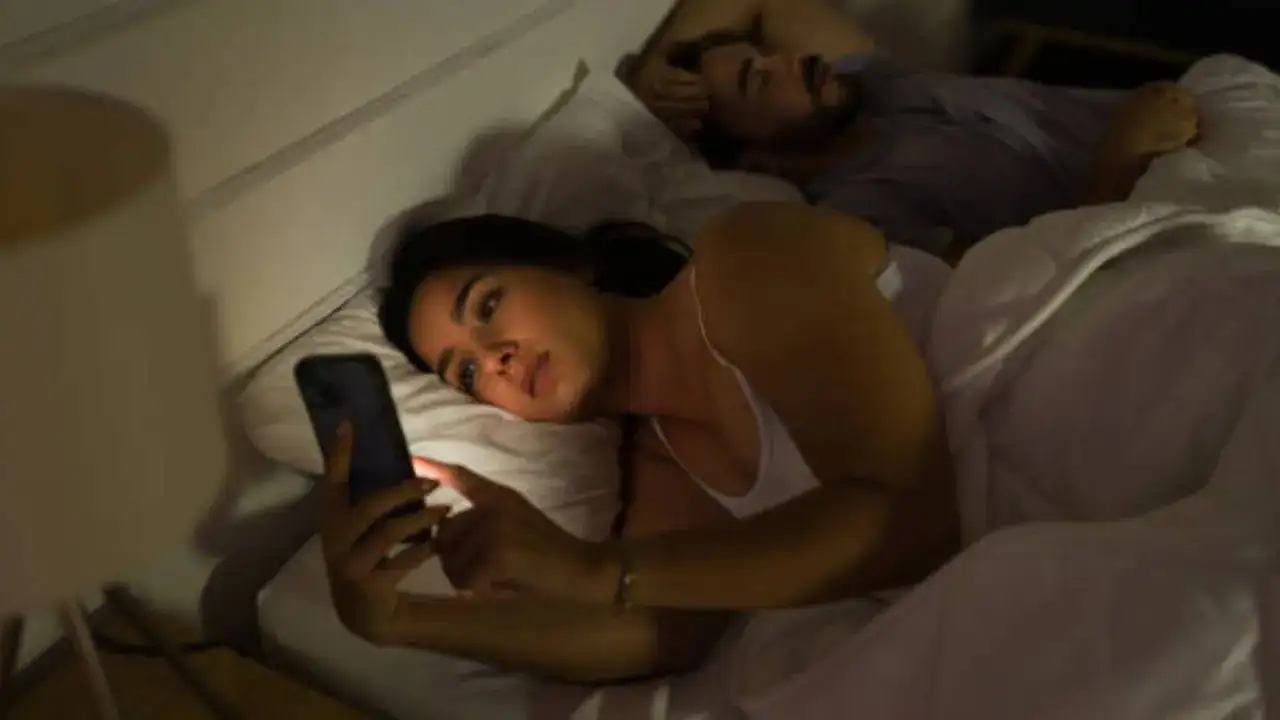
Health Quiz: Excessive Screen Time Can Lead To Deficiency Of Which Hormone? (Image Credits: iStock)
Excessive Screen Time Can Lead to Deficiency of Which Hormone?
A. Cortisol
B. Insulin
C. Melatonin
D. Estrogen
Answer: C. Melatonin
Melatonin is a naturally occurring hormone produced by the pineal gland in the brain. It plays a vital role in regulating our sleep-wake cycle — also known as the circadian rhythm. When the sun sets and darkness falls, melatonin production ramps up, preparing your body for rest. However, in today’s tech-dominated world, this delicate balance is increasingly disrupted.
The Link Between Screen Time and Melatonin Disruption
Melatonin secretion is closely tied to light exposure, particularly blue light — the kind emitted by smartphones, tablets, computers, and LED lights. According to a 2014 Harvard Medical School study, exposure to blue light at night suppresses melatonin production more powerfully than other wavelengths, delaying sleep onset and reducing overall sleep quality.
“Melatonin levels can be suppressed by up to 50 per cent after just 1.5 hours of screen exposure at night,” says Dr. Charles Czeisler, professor of sleep medicine at Harvard Medical School. “This isn’t just about falling asleep later — it’s about interfering with a hormone that regulates your entire biological clock.”
What Happens When Melatonin Drops?
Melatonin’s primary role is to help you fall asleep, but its influence goes further. When levels are low due to screen overuse, you may experience:
Delayed sleep onset (difficulty falling asleep)
According to the Journal of Clinical Endocrinology & Metabolism, melatonin also has antioxidant properties and plays a role in immune function, blood pressure regulation, and even mood stability.
Who Is Most at Risk?
Children, teens, and young adults are particularly vulnerable to melatonin suppression due to high screen usage and increased sensitivity to blue light. A 2021 study published in Sleep Health found that adolescents who used screens for more than four hours daily had significantly lower evening melatonin levels and poorer sleep outcomes.
Even adults aren’t immune. Office workers, remote employees, and gamers who work or relax late into the night with screens may be unknowingly sabotaging their hormonal balance.
Simple Tips to Protect Melatonin Levels
Want to keep your sleep hormone functioning properly? Here’s what experts recommend:
Use “Night Mode” or Blue Light Filters: Many devices offer settings that reduce blue light emissions in the evening.
Get Latest News Live on Times Now along with Breaking News and Top Headlines from Health and around the world.
